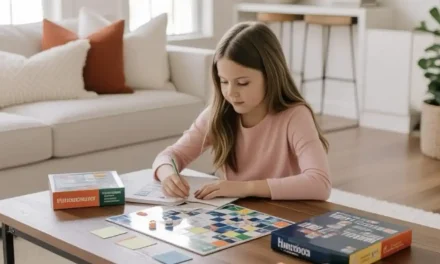
Encouraging Open-Mindedness: Engage with Differing Viewpoints
W
hen a child blurts out, “Why don’t they agree with me?” it’s more than frustration—it’s an opening. Learning to explore other perspectives isn’t about giving in; it’s about growing out. Like Renaissance thinkers who drew insight from many traditions, children expand their minds when they pause to understand someone else’s logic. This habit deepens empathy, strengthens communication, and helps them engage in diverse classrooms, friendships, and communities with more grace.
After a disagreement about a game rule, my son grew rigid. “They just don’t get it,” he snapped. Instead of correcting him, I asked, “What might they be thinking?” He paused, then began to guess their reasoning. That shift opened a conversation—one that ended with understanding, not victory. Later, he approached the same friend with new openness, and the two collaborated easily on a group project. That flexibility made him a better teammate and a stronger thinker.
To foster this at home, pick one disagreement—real or imagined—and ask your child to explain the other side’s view. Use stories, news events, or historical conflicts to practice. Ask what values might drive a differing opinion, and whether they’ve ever held a similar one. Encourage reflection, not rebuttal. These moments sharpen thinking without hardening attitudes, raising a child who listens before reacting and understands without surrendering their own voice.
Encouraging Open-Mindedness

Encouraging Open-Mindedness: Explore Diverse Logic Across Views
Show children that different cultures and thinkers use different logical frameworks. Broaden understanding, curiosity, and reasoning flexibility.

Encouraging Open-Mindedness: Evaluate Ideas by Their Merit
Teach children to judge ideas based on evidence and clarity—not popularity. Support independent thinking, fairness, and thoughtful decision-making.
Table of contents

Primordial Soup for the Mind: Navigation
Navigate the book Primordial Soup for the Mind.
TIPS
- Listen to opposing views calmly.
- Ask “Why might they think that?” to spark empathy.
- Celebrate understanding efforts.
ACTIVITIES
- View Share: Discuss a friend’s idea and ask, “What’s their perspective?” Discuss for 15 minutes.
- Perspective Chat: Share a news view and ask, “What’s their side?” Discuss for 10 minutes.
EXAMPLE
My daughter’s empathy grew after exploring a classmate’s opinion.

Download “Primordial Soup for the Mind: A Parent’s Guide to Nurturing Intellectual Growth”
Enter your information to get this article and hundreds more as part of the FREE book Primordial Soup for the Mind.
Share your thoughts with the Thought Academy community in the Comments section below.

Sharpen those skills!
Enter your information to get our FREE practice exercises so you can hone your critical thinking and reasoning skills!







0 Comments